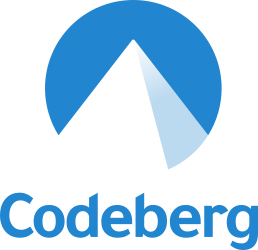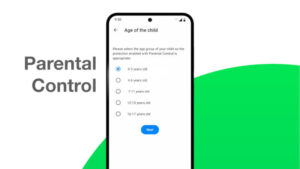Friday FOSS Week in Review
It was already a slow week when the news came on Wednesday of Steve Jobs’ demise. Since then, most tech sites have been reporting on not much else. As always, however, there were a few things to note…
Privacy Issues with Kindle Fire’s Silk Browser
Almost as soon as Amazon unveiled their new Kindle Fire tablet last Wednesday, Naked Security raised some privacy concerns about the device’s browser, called Silk. It seems the browser, in order to offer a quicker user experience, does most of it’s heavy lifting in the cloud:
“All web connections from your tablet will connect directly to Amazon, rather than the destination web page. Amazon will keep this connection between your Kindle Fire and EC2 open indefinitely while you are actively surfing, reducing the latency and connection times to retrieve web pages.”
Amazon’s terms and conditions state that URLs, IP addresses and MAC addresses will be logged and can be retained for as long as 30 days. Most problematic, however, is how the browser handles a secure HTTPS connection:
“It sounds as if Amazon will install a trusted certificate in the Silk browser allowing them to provide a man-in-the-middle (MITM) SSL proxy to accelerate your SSL browsing as well.
“As Amazon is a US based company this would enable a US court order to intercept and record your secure communications.”
The good news is that there is a mode available in the browser that bypasses the cloud and lets users connect directly with web sites. Although Amazon promises they’re collecting no identifiable user data with their logging, I would still recommend this mode, especially for secure connections.
Kernel.org Back Online
Kernel.org, shut down about a month ago after a serious intrusion, has returned online. The site is currently delivering the Git repositories of some Linux developers – which includes the development branch maintained by Linus Torvalds. However, The H Open reports the site is not yet back 100%. It’s expected to take a couple of weeks for full services to be restored.
As expected, there’s been some major security changes made that will effect how the site operates:
“According to a short statement in the news section of the main kernel.org page, the administrators have made some changes to server structure to improve the web site for developers and users. As announced previously, developers no longer have shell access to Git repositories. Kernel developers need to create PGP/GPG keys for accessing kernel.org and get them signed by other developers to create a web of trust…”
It’s expected that many Linux developers’ personal computers were also infected by this intrusion, and developers are being told to check their machines for malware. Kernel.org administrators are saying there will be a full report on the hack/crack forthcoming.
Microsoft Kills Zune
This just in from our ho-hum department…
The Zune, which Microsoft released in 2006 as an iPod killer, is now officially history, according to an item on the official Zune site:
“We recently announced that, going forward, Windows Phone will be the focus of our mobile music and video strategy, and that we will no longer be producing Zune players. So what does this mean for our current Zune users? Absolutely nothing. Your device will continue to work with Zune services just as it does today. And we will continue to honor the warranties of all devices for both current owners and those who buy our very last devices. Customer service has been, and will remain a top priority for us.”
As far as I’ve been able to determine, no memorial service is planned. I am sure there are three or four dedicated Zune users who have been devastated by this news, however.
More WebOS Rumors
Rumors continue to abound about the future of WebOS, the Linux-based mobile OS originally developed by Palm which is being abandoned by its current owner HP. Mobile Beat has reported that Amazon might be expressing an interest in the OS for use on it’s next generation Kindle Fire tablet:
“A well-placed source tells us that HP is currently looking to rid itself of Palm as soon as possible, and that Amazon is the closest to finalizing the deal, among a handful of contenders.
“Indeed, after yesterday’s announcement of Amazon’s Kindle Fire tablet, no other company seems as fitting a home for Palm and its webOS software. It’s worth noting that former Palm CEO Jon Rubinstein, who now holds a vague “product innovation” role at HP’s Personal Services Group, joined Amazon’s board late last year.
“When asked for comment, an HP spokesperson said the company doesn’t comment on rumors and speculation. We’re still waiting to hear back from an Amazon representative.”
If Amazon purchases HP’s entire Palm division, I wouldn’t be at all surprised to see the Palm phones resurrected as an Amazon brand.
Ubuntu to Power HP’s Public Cloud
Softpedia reports that Ubuntu will be the OS on the servers running OpenStack, HP’s planned cloud service. The news was made public yesterday by Canonical’s CEO Jane Silber:
“We are excited to join with HP in recognizing that open and interoperable cloud infrastructure and services are critical in delivering the next generation of cloud-based services to developers, ISVs and businesses.”
If I was HP, I’m not sure Ubuntu would be my first choice. However, I’d definitely be running Linux under the hood.
Well, that’s it for this week. See you on Monday. Until then, may the FOSS be with you…
Christine Hall has been a journalist since 1971. In 2001, she began writing a weekly consumer computer column and started covering Linux and FOSS in 2002 after making the switch to GNU/Linux. Follow her on Twitter: @BrideOfLinux

















so silk is just like opera-mini?
And Silk is very similar to how WebTV functioned. As you may or may not recall, WebTV was a TV top box that provided a connection to the internet (via dial up or later broadband) and hooked up to mostly standard definition TV sets… so the resolution was rather small.
All traffic went through WebTV’s servers who would get the content, process it, and then deliver it to the WebTV in a form suitable for the smaller screen.